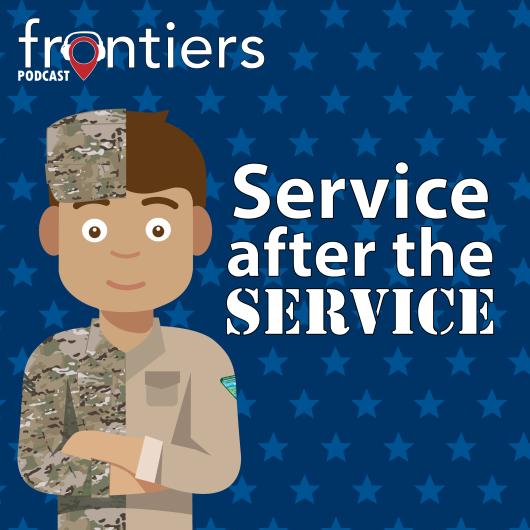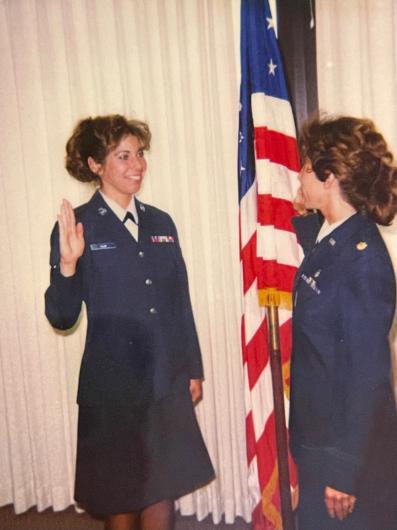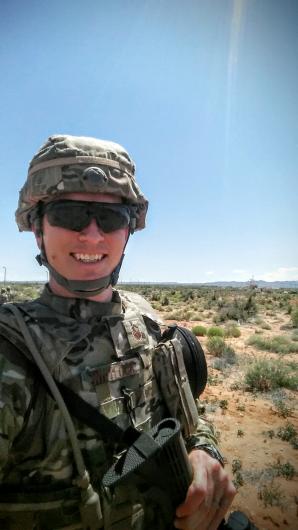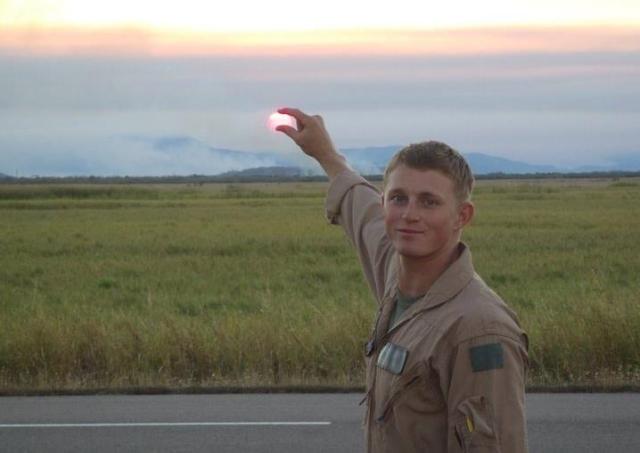You are viewing ARCHIVED content published online before January 20, 2025. Please note that this content is NOT UPDATED, and links may not work. Additionally, any previously issued diversity, equity, inclusion or gender-related guidance on this webpage should be considered rescinded. For current information, visit https://www.blm.gov/blog.
Podcast: Service after the service

Transcript
[Jim Hart]: Welcome to the BLM Alaska Frontiers podcast, I'm Jim Hart. If you're in the military, what do you plan to do after separation? Have you considered civil service? Sure, you've seen lots of folks go to work as DOD civilians or maybe take a job with the Department of Veterans Affairs. But have you considered the Department of the Interior? Today, we're talking with three veterans, each of whom took a different path that led them to the BLM. We hope their stories help to encourage you to take a look at the BLM and what it has to offer, both in mission set and overall job satisfaction. Let's start with introductions. Tell us who you are and what you did in the military.
[Dina Torres]: Hi, I'm Dina Torres. I'm the branch chief of adjudication here at the Alaska State Office, and I was in the Air Force. I was trained as a medical technician and then further trained in allergy immunology, and that was my career for the entire 20 years.

[Jim Hart]: How about you, James?
[James Whitlock]: Yeah, my name is James Whitlock. I'm the mining enforcement and compliance lead for BLM Alaska. And in my military career, I was first in the Marine Corps as an aviation ordnance man and then transferred to the Air National Guard, where I was a SATCOM satellite communications expert and then transitioned to civil engineering, where there I did structural vertical construction and heavy equipment operations.
[Jim Hart]: And finally Stolf. Tell us a little bit about what you did in the military.
[Stolf Short]: Yes. Hi, my name is Stolf Short. I'm an outdoor recreation planner for the BLM and the Anchorage field office. I was in the Marine Corps and my position was a crew chief on the KC-130J aircraft. It's an aerial refueling transport aircraft.
[Jim Hart]: And so what do you guys do now? We'll start with Dina.
[Dina Torres]: Yeah. What I do now for BLM is I am the branch chief of adjudication over the Alaska Land Transfer Program that oversees the ANCSA, That's the Alaska Native Claims Settlement Act land transfer, the state of Alaska and the Native Allotment Land Transfer acts.
[Jim Hart]: Wow, that's quite a change from what you used to do. How about you, James?

[James Whitlock]: So I'm the mining compliance and enforcement coordinator for BLM Alaska, and so I work with mining companies throughout the state on federal lands, helping to make sure that they are able to work through the compliance and regulatory process for their mining operations.
[Jim Hart]: All right. Thanks, James. And how about you Stolf?
[Stolf Short]: Yeah, I'm an outdoor recreation planner for the Anchorage Field Office. In a nutshell, my job is to help manage anything recreation in broad swath of western Alaska, as well as here in Anchorage. We have the Campbell Tract, where we manage 12 miles of trail for a multitude of recreation opportunities and see about half a million visitors a year.
[Jim Hart]: Thanks, Stolf, and James, you had an interesting career transition from the Marines to the Air Guard. And while you were serving in the Guard, you became a BLM employee, right?
[James Whitlock]: I did, yes. I started off in the Marine Corps. That was a great opportunity. And then I actually wanted to go to college and an opportunity came along to move to Alaska to attend college. And but I didn't want to give up my military career at that point. And so I found an opportunity to enter in with the Alaska Air National Guard through their Satellite Communications Group. And while I was going to college, an opportunity came along for an interim position with the Bureau of Land Management, and I applied and got that. So I was actually going to college while doing my volunteer work with the BLM and then also serving in the National Guard.
[Jim Hart]: Thanks, James. Dina, you were in the medical field and serving at the JBER Hospital when you came to the BLM, correct?
[Dina Torres]: Yes, that's correct, Jim. I served 11 years on active duty with the Air Force in the medical field, in allergy immunology and then transferred into the reserve program, which is an IMA program, not the typical reservist. It's an individual mobilization augmentee where I was attached to the active duty. I worked at the JBER Hospital as a reservist, while I also worked at BLM in the Division of Conveyance Management. And once I retired from my reserve time at the 673d Medical Group, I then continued my time here at BLM and now serving as a branch chief over the land transfer program.
[Jim Hart]: Thanks, Dina. And Stolf,
[Jim Hart]: You worked for the Forest Service before coming to the BLM, but before that you were a guide, right?

[Stolf Short]: Yes, Jim. Yeah, that's correct. After I got out of the Marine Corps, I really want to spend my time outside. And so I got a job as a as an outdoor adventure guide, taking people hiking, climbing canyoneering, rafting, canoeing, kayaking. And, you know, I spent my time for about five years doing that. I really loved it. But then I started a young family, and I wanted some stability. And so I got a job with the Forest Service as a recreation technician. And I ended up seeing a position for the job I'm in now. It was a little bit of a gamble because the position was a term, which means that it has a time that it would expire. But I jumped in feet first and since I'm a veteran, it was really nice to be able to use that special hiring authority. And my job is now transferred to a permanent position as an outdoor recreation planner.
[Jim Hart]: Well, that's pretty cool. So how do you think your military time has helped you in your current career?
[Stolf Short]: Yeah, I really missed when I got out of the Marine Corps. I really missed that teamwork and collaboration as well as, you know, the really close relationships you get to build with your fellow Marines and, you know, service members. And one thing I've found though, working for the federal government, whether it's Forest Service or BLM, and particularly with the team I'm in now, is that we have a really tight group of of teammates that we work well as a team, and we collaborate and
[Stolf Short]: we've been able to build some really strong relationships.
[Jim Hart]: What about you, James?
[James Whitlock]: Yeah. Yeah, I was just going to follow up. You know, I agree with Stolf, you know, the great part about the military is that camaraderie and teamwork and continuing that on it actually manifests itself in multiple ways in the Bureau of Land Management And what we do here with our multiple-use mission. But you know, some of the other skills I picked up in the military and my communication skills, especially addressing complex situations, maybe with a considerable amount of stress, you know, having that skill set there helped me a ton of my BLM job. And it's also useful that I was a heavy equipment operator for quite a number of years in the military, and now working with the mining community, and and mostly small placer mining operations around the state, I can speak their language, and I understand heavy equipment operations, and that's been a huge asset and a big help.
[Jim Hart]: And how about you, Dina?
[Dina Torres]: So so my experience is that so I worked the entire time in the Air Force, in the medical field. So when I was hired on with BLM, and then shortly after I was hired on as an assistant here at the office, I was hired on as a land law examiner -- I had no idea how my time in the Air Force would help me with what I'm doing today at BLM. Because I had to pay such close attention to detail with what I was doing with patient care, it actually transferred over nicely to BLM in the land transfer program.
[Dina Torres]: We have to be very careful in our accuracy and the detail of our work to make sure that we're not inadvertently transferring land out of federal ownership that is not the correct land transfer. So along those lines, I also agree with the others that that teamwork follows you no matter where you go and having that in both the Air Force and with BLM, you learn over the years that people come first and the mission will follow. And that's I've always been told that and it is so true. You take care of your people and the mission will follow.
[Jim Hart]: Thanks, Dina. That's some great advice. So do any of you have a favorite story to share?
[James Whitlock]: Well, actually, Jim, I have lots of stories to share, but you know, one that stands out is this great integration that I've had in my experience being in the Air National Guard here in Alaska, in my hometown and then with BLM. And we did a lot of deployments to the Middle East with with the National Guard. And along the way, the BLM had to give a lot because I would be gone for sometimes up to a year at a time. And that was really important that I knew that I had that stability back home and I had the support of my friends here at the BLM. And as an appreciation to that, I was actually able to nominate our manager at the time. In the BLM, we have what's called field managers are kind of in charge of large areas.
[James Whitlock]: And I was able to nominate our field manager for a employer recognition award and they actually hauled them out to the guard base here. And he went out and hung out with our para rescue group and got to where all the awesome body armor and, you know, sit in the helicopters and all this kind of things and and kind of show them what we do on our side of the house as an appreciation for that. So, you know, that's I think that helps with the community of things.
[Jim Hart]: And that's a great point. The BLM is very supportive of our guardsmen and reservists. So Dina, what's your favorite story?
[Dina Torres]: So, yeah, for me, my favorite story, well, that I would like to share is that working in the medical field and particularly in allergy immunology, I got to see people who are traveling all over the world in and out of the the clinic for their vaccinations and working with the military, families and the retirees. It was very, very rewarding to be able to help people and listen to their stories. So I got to meet a lot of people and here are a lot of different stories. I formed close bonds to people who were our allergy patients that came in twice a week and needed their immunotherapy to treat their symptoms, and so I got to know a lot of people over the years and formed great relationships.
[Jim Hart]: And building those close relationships is a rewarding part of any career. At the BLM
[Jim Hart]: you've had plenty of opportunities for that, right?
[Dina Torres]: Yes, absolutely. And so working with BLM, I now get to also keep those relationships with the corporations, whether that be regional or village corporations and the state of Alaska and even a couple of native allottees working here for almost 20 years now. We formed good working, trusting relationships that have come a long way. And it's very rewarding to be a part of that. How about you, Stolf? Yeah.
[Stolf Short]: Similar to James and Dina, my experiences in the Marine Corps can translate pretty well over to the BLM. And one of those, it's not really so much of a story, but I think many of you can appreciate this, that we have a lot of really adverse situations that we have to overcome. And oftentimes, you know, those those situations really bring people together and, in a way, you can kind of laugh about them later. And I found that that's occurred for me. Similarly, with the BLM, in some of these resource missions that I've gotten to be a part of and just working out in the field, there are trying and difficult times that you have to get through. But I think working as a team and working with each other, you're able to look back and laugh at those experiences and really grow from them.
[Jim Hart]: And that's true. As a recreation planner, you guys are often outside in the winter during some pretty difficult conditions.
[Stolf Short]: Oh, absolutely.
[Stolf Short]: Yeah, I like to laugh about it, but it can be pretty miserable. But it's also a really great time to work together to make sure you know you're taking care of each other and still accomplishing the mission.
[Jim Hart]: So what advice do each of you have for people looking into working for the BLM?
[Stolf Short]: Yeah, I can hit on that. If you want James.
[Jim Hart]: Go for it.
[Stolf Short]: Yes. You know, taking advantage of the transition assistance and taking copious notes will really help you out, particularly if you have a job in mind. Like for me, my job, I'm an outdoor recreation planner. I went down the recreation path. If you want to do biology or some sort of science, what I would suggest doing is looking into the benefits you have, such as the GI Bill. Know what's required for that job by looking into it, use the GI Bill, and get a degree. And there's a lot of assistance at many universities that will help you to attain the degree that'll then funnel you directly in to be a competitive person in the job field that you're looking for. Yeah, I can't say enough about using the GI Bill. I really appreciate having that opportunity to use it, and I'm really thankful.
[James Whitlock]: Yeah, I would say take advantage of the resources through the Veterans Administration and, you know, get out there and talk with your counselors if you're going to utilize the GI Bill and also take advantage of the resume writing courses, get to know how to work through USA jobs.
[James Whitlock]: There are certain direct-hire authorities that they have for veterans, but also don't be afraid to volunteer with the BLM. The BLM offers a lot of community activities where here in Anchorage, for example, we have outdoor week. There's also a public lands day where you can get out, be involved, get to know some of the folks. And if you can make it work, volunteer. There are so many jobs from our cadastral surveyors that go out and survey the lands to the Conveyance Group. We have biologists and we have geologists. We've got the whole range of everything that happens here all the way to it. So if you're interested, get involved, ask questions and and definitely use those VA resources.
[Dina Torres]: So Jim, my advice for those considering a job with BLM is to, well, just go for it. There's so many opportunities for veterans with those who are still on active duty about to separate or retire or are retired. The resources that are available both on base and off base, at the VA, and online through OPM, the Office of Personnel Management, USA Jobs -- get in there and and go for it and don't give up. Try something different, because you just never know where it might take you.
[Jim Hart]: All right, so probably the most important question would you do it again?
[Dina Torres]: Absolutely. I do it again.
[James Whitlock]: Yes, I would in a heartbeat do it again, and I would probably do more. The military opens up so many options and and same with the Bureau of Land Management, but I would do it again in a heartbeat.
[Stolf Short]: Yeah, I'd echo both of them. Same thing, you know, I do wish I would have taken more advantage of the opportunities available to me in the military, and I appreciate all of them that I was able to take advantage of. And yeah, I really love what I'm doing now, and I don't think I would have been able to get here without my experience in the military.
[Jim Hart]: All right. Thanks, Stolf, and thanks everyone for joining us. That's it for this podcast. To anyone who is interested in an exciting and rewarding career with the BLM, go to USA jobs and search "BLM" for current openings. The BLM has a rich variety of occupational specialties, and the job locations span across some of the most beautiful locations in the Western states, and we even have some locations back east. The Frontiers podcast is a production of the BLM Alaska Office of Communications.
James Hart, Public Affairs Specialist
Related Stories
Office
222 W 7th Avenue #13
Anchorage, AK 99513
United States
